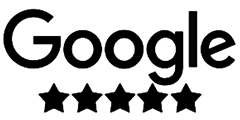
January 1, 2024
By
Kamran Awan
Category
Individual
Accountability is a cornerstone of successful businesses, and for business owners, it is more than a buzzword; it's a guiding principle that can shape the destiny of a company. In this blog, we will delve into the multifaceted aspects of accountability, exploring its definition, benefits, challenges, and the pivotal role it plays in business growth.
At its core, accountability involves taking responsibility for one's actions, decisions, and their outcomes. In the context of business ownership, this translates to acknowledging the impact of choices on the company and its stakeholders. It goes beyond fulfilling duties; it's about understanding the consequences of decisions and actions.
Benefits of accountability in business
Improved performance
When business owners embrace accountability, it sets a positive tone for the entire organisation. Employees are more likely to be accountable for their tasks, leading to improved overall performance. The culture of responsibility becomes infectious, creating a more efficient and effective work environment.
Building trust
Accountability is a cornerstone of trust. Business owners who hold themselves accountable inspire confidence in their teams, clients, and investors. Trust is a currency that can significantly influence the success and longevity of a business.
Enhancing decision-making
Accountability forces business owners to critically assess their decisions. When they know they will be answerable for the outcomes, they are more likely to make informed choices, considering both short-term gains and long-term consequences.
Personal accountability for business owners
Leading by example
Business owners are the leaders of their organisations, and leading by example is a powerful form of accountability. When owners model the behaviour they expect from their teams, it creates a culture of responsibility from the top down.
Owning mistakes
Accountability also involves acknowledging and learning from mistakes. Business owners who take responsibility for errors demonstrate humility and a commitment to continuous improvement. This, in turn, fosters a culture where learning from failures is valued.
Creating a culture of accountability
Establishing expectations
Setting clear expectations is crucial for fostering accountability. Business owners need to communicate expectations regarding performance, conduct, and adherence to values. Clear guidelines help employees understand what is expected of them.
Providing support and resources
Accountability is not just about pointing out mistakes; it's also about providing the necessary support and resources for success. Business owners should ensure that their teams have the tools and training needed to meet expectations.
Accountability tools and technologies
Software solutions
In the digital age, various tools and software solutions can aid in tracking and managing accountability. Project management software, collaboration tools, and performance tracking systems can streamline accountability processes.
Tracking and reporting mechanisms
Implementing systems for tracking and reporting accountability metrics is essential. This can include regular performance reviews, key performance indicators (KPIs), and other measurable outcomes that align with business goals.
Challenges in implementing accountability
Resistance and fear
Implementing accountability can face resistance from employees who fear the consequences of being accountable. Business owners need to address this fear by emphasising a supportive environment that focuses on learning and improvement.
Overcoming obstacles
Identifying and addressing obstacles to accountability is a continuous process. Whether it's outdated processes, lack of communication, or a culture of blame, overcoming these challenges is essential for establishing a robust accountability framework.
Accountability and business growth
Impact on scalability
Businesses that prioritise accountability are better positioned for growth. A culture of responsibility facilitates scalability by ensuring that as the business expands, each team member is equipped to handle increased responsibilities.
Fostering innovation
Accountability and innovation go hand in hand. When employees feel secure in taking risks and being accountable for the outcomes, it encourages a culture of creativity and innovation. This can be a powerful driver for staying ahead in competitive markets.
Measuring accountability
KPIs (Key performance indicators)
Measuring accountability requires defining and tracking key performance indicators. These indicators should align with the organisation's goals and reflect the desired outcomes of accountable behaviour.
Evaluating progress
Regular assessments of accountability progress are essential. Business owners should continuously evaluate whether the established expectations are being met and adjust strategies as needed to improve accountability across the organisation.
Accountability in a remote work environment
Challenges and solutions
The rise of remote work introduces new challenges to accountability. Business owners need to address issues such as communication barriers, maintaining team cohesion, and ensuring that remote employees feel a sense of accountability for their work.
Ensuring transparency
Transparency becomes paramount in a remote work setting. Business owners should strive to keep their teams informed about company goals, expectations, and performance metrics, fostering a sense of shared responsibility.
Legal implications of accountability
Compliance and ethical considerations
Accountability extends beyond internal operations to legal and ethical considerations. Business owners must ensure that their actions and decisions comply with regulations and ethical standards, mitigating the risk of legal repercussions.
Mitigating risks
Understanding and mitigating the legal risks associated with accountability is crucial. This involves implementing safeguards, staying informed about industry regulations, and seeking legal counsel when necessary.
Crisis management and accountability
Navigating challenges
In times of crisis, accountability becomes a linchpin for effective management. Business owners must navigate challenges decisively, taking responsibility for decisions made and actions taken to address crises.
Reputation management
Accountability plays a pivotal role in reputation management. How a business responds to challenges can significantly impact its public perception. Taking responsibility and demonstrating a commitment to resolution can help rebuild trust.
Conclusion
In conclusion, the importance of accountability for business owners cannot be overstated. It is the bedrock upon which successful and resilient businesses are built. By defining accountability, understanding its benefits, overcoming challenges, and fostering a culture of responsibility, business owners can not only navigate the complexities of the business world but also thrive and leave a lasting impact.
FAQs
Q: How can business owners foster accountability within their teams?
A: Implement clear expectations, provide support, and lead by example.
Q: What are the legal implications of accountability in business?
A: Business owners must ensure compliance with regulations and ethical standards to mitigate legal risks.
Q: How does accountability contribute to business growth?
A: Accountability enhances performance, fosters innovation, and supports scalability.
Q: What tools can help track and measure accountability in a business setting?
A: Software solutions, key performance indicators, and tracking mechanisms are useful.
Q: How can accountability be maintained in a remote work environment?
A: Overcome communication barriers, ensure transparency, and create a sense of shared responsibility among remote teams.
To find out how you can launch your own Digital Agency, please contact a member of our team.
Until next time, take care.
Share this Post






















